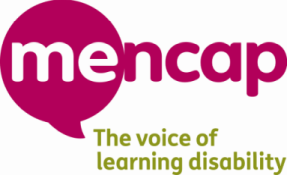
On December 3 this year, during the annual celebration of people with disabilities, the 2020 theme ‘Not all Disabilities are Visible’ also focuses on spreading awareness and understanding of disabilities that are not immediately apparent, such as mental illness, chronic pain or fatigue, sight or hearing impairments, diabetes, brain injuries, neurological disorders, learning differences and cognitive dysfunctions, among others.
According to the WHO World Report on Disability, 15 per cent of the world’s population, or more than 1 billion people, are living with disability. Of this number, it’s estimated 450 million are living with a mental or neurological condition— and two-thirds of these people will not seek professional medical help, largely due to stigma, discrimination and neglect.
Another 69 million individuals are estimated to sustain Traumatic Brain Injuries each year worldwide, while 1 in 160 children are identified as on the autism spectrum.
These are just some examples of the millions of people currently living with a disability that is not immediately apparent, and a reminder of the importance of removing barriers for all people living with disability, both visible and invisible.
During the COVID-19 pandemic, isolation, disconnect, disrupted routines and diminished services have greatly impacted the lives and mental well-being of people with disabilities right around the world. Spreading awareness of invisible disabilities, as well as these potentially detrimental— and not always immediately apparent— impacts to mental health, is crucial as the world continues to fight against the virus.
______________________________________
World Health Organisation Article
What is International Day of People with Disabilities?
______________________________________
History of Disability Rights
Ever since the mid 20th century, those with disabilities have been campaigning for more recognition of disability as an aspect of identity, rather than the defining feature of a person. Here's a brief overview of the timeline of the Disability Rights Movement:
The 1950s - International movement from institutionalising people with disabilities to providing those individuals with community care
The 1960s - The very first Paralympics Games is held, celebrating the sporting achievements of people with disabilities
The 1980s-90s - Many countries introduce laws that make it illegal to discriminate against people with disabilities
The 2000s - The UN holds the Conventions on the Rights of People with Disabilities
The 2010s - Steps were taken to increase the number of disabled people working and to decrease the disability employment gap
______________________________________
What is the theme for International Day of Persons with Disabilities 2020?
This year's theme is 'Not All Disabilities Are Visible'. The day aim to raise awareness of disabilities which may not be immediately apparent but can still have an impact on people's lives. These include mental illness, learning difficulties, chronic pain and sight or hearing impairments among others.
People with disabilities have been particularly impacted by the COVID-19 pandemic and the isolation and diminished services which have happened as a result.
The goal for this year's International Day of Persons with Disabilities is to spread awareness of invisible disabilities as well as the impact that COVID-19 has had on mental health.

Advice and support for disabled students, parents and or carers of a disabled student or professionals working with a disabled student on a wide range of issues.
0330 995 0414 / 0800 328 5050
Disabilityrightsuk.org

Learning disability is a complicated subject, and trying to find the right advice for you can be hard sometimes. Click here to get the right support you need
0808 808 1111 or you can email helpline@mencap.org.uk
For any further advice or support please email support@futureworks.ac.uk
